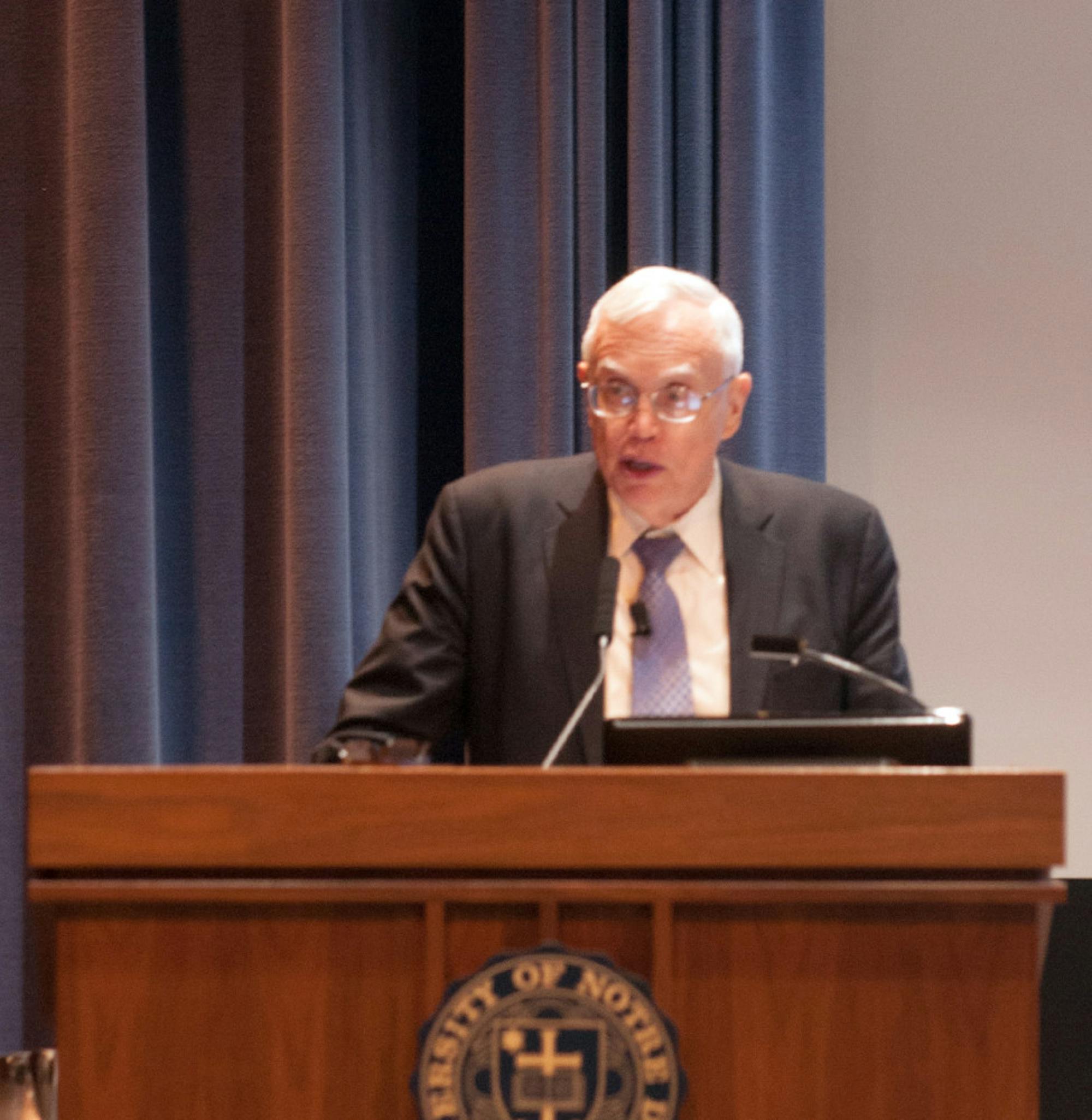Nobel Laureate economist James Heckman opened the Center for Ethics and Culture’s 2014 fall conference on poverty on Thursday night with a discussion of the importance of family and early intervention in alleviating socio-economic inequality.
“I want to think about a dynamic strategy — a way to approach poverty and intergenerational inequality which is going to be based on the notion which I will call ‘predistribution,’” Heckman said. “… [Predistribution is] a strategy of giving skills to people to avoid [poverty] in the first place … a strategy that builds character, promotes family values, and creates skills … [such that] what is socially fair can also be viewed as economically efficient.”
“I want to think about a strategy based on creating capabilities … the capacities to act and create future capacities,” he said. “If we look at those capacities in a modern sense … we’re going to have a very different way of thinking about addressing poverty.”
“What we’ve come to understand is that in the life of children … there are critical and sensitive periods in the formation of these capabilities … where some skills are more easily shaped than in other periods,” he said.
Gaps in “both emotional and social skills [observed in 5- and 6-year-olds] … really aren’t that much alleviated by going to school,” and persist into adulthood, Heckman said. This becomes problematic in the fact that “skills are very important all around the world, and they’re major determinants of inequality.”
“Genes play a role, but they’re far from the whole story,” Heckman said. “The capabilities that matter are … acquired, and can be fostered by families, schools and social interactions.”
“What we’ve seen from a number of [successful] interventions … [is a change in] the nature of the parent/child relationship, or the mentor/child relationship … [in that they] change the way parents perceive themselves, how important their role is … and parental response to the child’s curiosity.”
Economics professor Joseph Kaboski summarized Heckman’s discussion as the idea “that lack of personal development, inequality in personal abilities, leads to both material poverty and other social problems.”
“Skills beget skills … [and] predistribution is better than redistribution in terms of being a possible win-win for everybody,” Kaboski said, in the fact that it is a preventative rather than reactive approach to reducing inequality.













